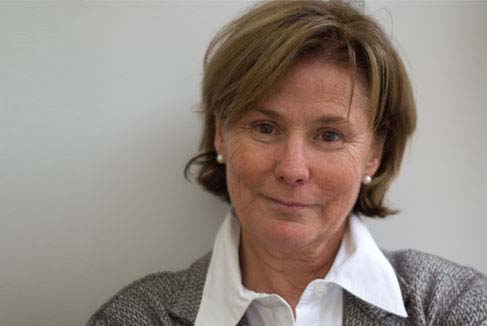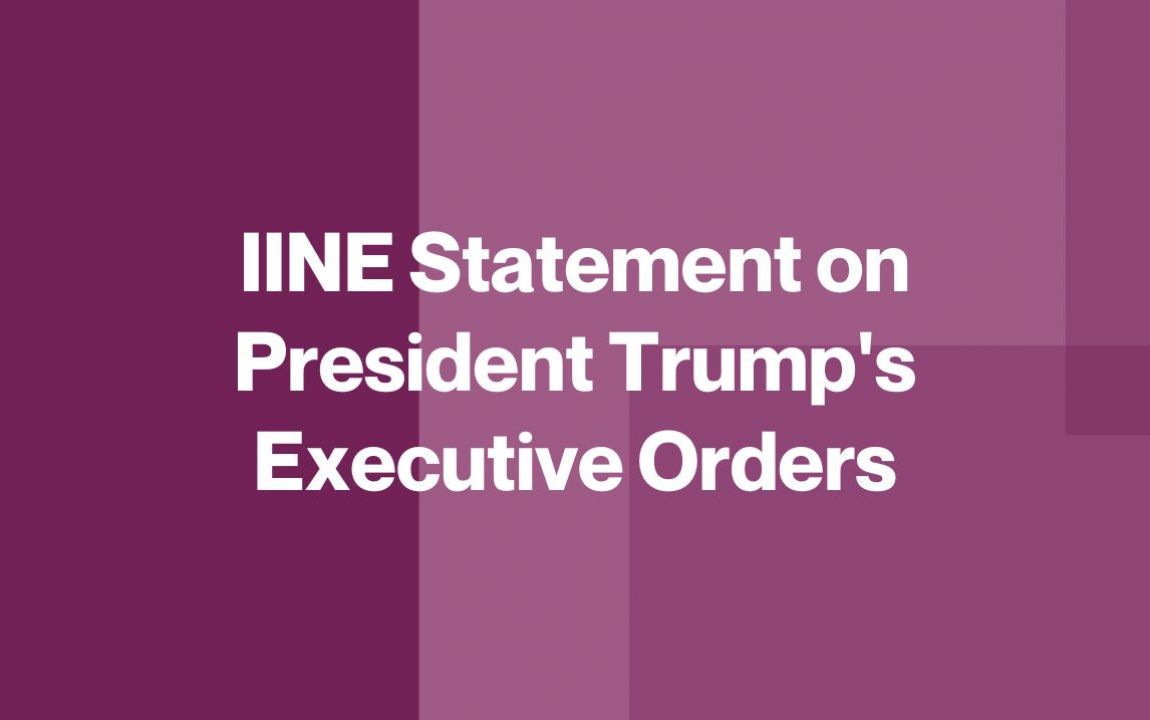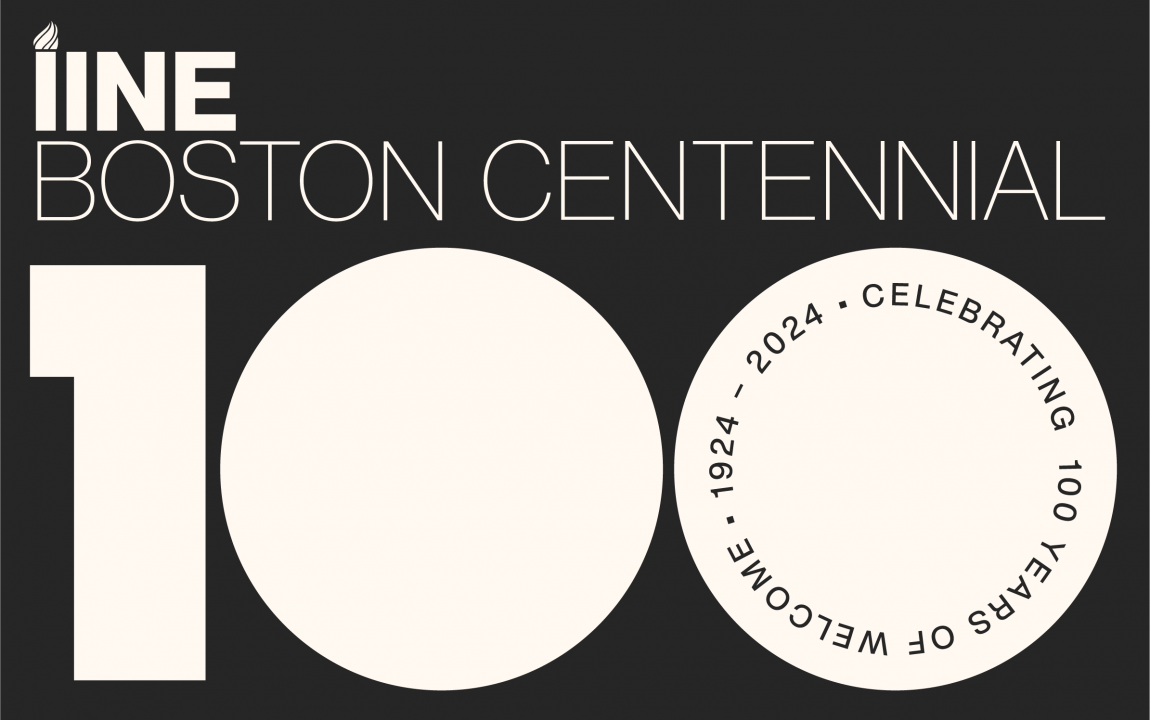2005–2014: Bringing Families Together
Welcome to the tenth installment of our series “100 Years of Welcome: Commemorating IINE’s Boston Centennial.” The previous installment, “1995–2004: Dreams of Freedom,” described how the International Institute of Boston educated the public by opening the Dreams of Freedom immigration museum; helped newcomers build savings, buy homes, get jobs, and recover from traumas with a host of new programs; resettled refugees fleeing conflicts in the Balkans and Sudan; and was an outspoken supporter of Arab and Muslim communities at the beginning of the War on Terror.
 In 2005, Carolyn Benedict-Drew, who had previously served as Chief of Policy for Providence Mayor David N. Cicilline, became the President and CEO of the International Institute of Boston (IIB) – its tenth leader. In her first year, she established the International Women’s Day (IWD) Luncheon to build support for women and girl refugees and immigrants, highlight their unique needs, and celebrate their successes. Throughout her tenure, she oversaw a variety of resettlement challenges and innovations.
In 2005, Carolyn Benedict-Drew, who had previously served as Chief of Policy for Providence Mayor David N. Cicilline, became the President and CEO of the International Institute of Boston (IIB) – its tenth leader. In her first year, she established the International Women’s Day (IWD) Luncheon to build support for women and girl refugees and immigrants, highlight their unique needs, and celebrate their successes. Throughout her tenure, she oversaw a variety of resettlement challenges and innovations.
Resettling Families from Iraq and Bhutan
As the U.S.-led war in Iraq raged on, the deeply divided country began to tear apart, creating a massive displacement crisis. Millions of Iraqis were forced to flee their homes due to mass bombing campaigns, street-level military skirmishes, and sectarian violence. Particularly vulnerable were the nation’s many different religious, ethnic, and political minority groups.
Resettling hundreds of Iraqis with varying backgrounds and needs became a major focus for IIB. The first arrivals came with Special Immigrant Visas, granted for serving the U.S. government in roles such as interpreters, engineers, or security personnel, which made them targets of the Iraqi government. Other threatened and persecuted groups followed in waves as they secured refugee status. IIB helped many Iraqis resettle in the nearby cities of Chelsea and Quincy, where one family went on to found Falafel King, a restaurant chain that now boasts two locations in downtown Boston.
During the height of Iraqi resettlement in 2008, IIB also began to welcome hundreds of refugees from Bhutan. They were largely Nepali-speaking Lhotshampas (Southerners) who had been exiled in the early 90s when conflicts flared over the government’s promotion of a single national identity. Many spent the intervening decade living in refugee camps in Nepal where they faced dangerous health conditions, but thanks to NGOs, often learned English. IIB helped many Bhutanese resettle in Lynn, and Chelsea, and IIB Employment Specialists helped many find service jobs at Logan International Airport. Each morning and evening, Bhutanese refugees would fill busses between Chelsea and East Boston on their way to help make New England’s busiest airport function.

Strangers Become Family
In 2011, in response to a growing need, IIB took on a new resettlement challenge: finding housing for single refugee men—most commonly Iraqi, Ethiopian, and Eritrean—who had been forced to immigrate independent of their families, were not used to living without them, and could not afford individual living arrangements. Sharing a new home with several people whom they had never met, and often beginning without a common language, created another whole level of uncertainty for people who were already enduring tremendous change. Their IIB Case Specialists made many house visits to help these new arrivals connect across languages and cultures. The results were often beautiful, as many of these households came to form tight and lasting bonds, and to rely on one another as they worked toward self-sufficiency.
Family Reunification
In 2011, IIB launched a new initiative in response to a growing crisis in Central America. An epidemic of deadly and destabilizing gang violence throughout the Northern Triangle countries of Guatemala, Honduras, and El Salvator had led to a record surge of children no longer safe in their home countries who undertook long and dangerous journeys unaccompanied to cross the U.S.-Mexico Border in search of family members in the U.S.
With support from the federal government, IIB began the region’s first Family Reunification Program to help unaccompanied children apprehended at the border reunite with their families in safe households, receive physical and mental health care, enroll in school, and integrate into New England communities.
A Family of Agencies
That same year, the International Institute of Boston formally joined its own family of sorts. Back in 1994, IIB worked with a network of faith-based community groups to establish an office in Manchester, New Hampshire. In 2001, a formal collaboration began with the International Institute of Lowell, in Massachusetts, a partner agency founded in 1918. In 2011, the three offices formally merged into a new regional agency: The International Institute of New England. This union represented a new era of collaboration, facilitating the sharing of best practices and other resources across locations and giving each office more options in searching for housing and optimal services for each new arrival.
· · ·
Building on the success of this period, the International Institute continues to provide tailored support to refugee and immigrant women and girls through our WILLOW Fund, resettles single arrivals as well as families, and serves hundreds of unaccompanied children each year through a program that now spans New England and New York. Last year, the International Institute of New England (IINE) served more than 20,000 refugees and immigrants, and through its collaborations ensures our newest neighbors find welcome and opportunity in our communities every day.
During our centennial year, we celebrate 100 years of life-changing support for refugees and immigrants in Greater Boston and prepare for our second century of service. Learn more here: IINE Boston Centennial.
Related Articles

IINE Statement on President Trump’s Executive Orders

Why They Give: An Interview with IINE Donors Nancy and Kent Van Zant
